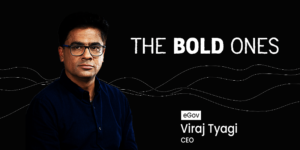The growing Buy Now, Pay Later (BNPL) market in the US is set to grow to a Gross Merchandise Value of $309.8 billion in 2028 from $88 billion in 2020. This has seen multiple fintech firms make a play for the lucrative market, including the likes of Swedish fintech firm Klarna, Australian fintech firm Afterpay as well as US headquartered Affirm and PayPal.
New York-headquartered , founded by Indian co-founders, wants to be the tech layer connecting banks, fintechs, and merchants in this snowballing ecosystem. Backed by Bertelsmann India Investments and Accel, Skeps offers its technology stack to merchants and banks to surface BNPL as part of the payments option rather than a separate credit layer.
Incorporated in October 2018, Skeps was founded by IIT Kharagpur alumni Mayank Tewari and Prerit Srivastava and IIT Delhi alumnus Tushar Srivastava. The company started out as a blockchain marketplace where lenders could buy and sell leads in a secure way, while borrowers could maintain confidentiality while shopping for the right lender.
In its initial avatar, the company established a network of fintech companies and banks. At present, the company works with six fintechs and two bank partners, targeting the US market.
The product journey
Skeps was initially focused on disbursing loans for healthcare and home renovation sectors through online aggregators of credit.
Since then, it has tweaked its product to provide white labelled BNPL solutions to lenders, including fintech and banks. Through these lenders, the company works with online businesses, providing them with BNPL technology integration.
When a customer looks for a credit-based payment option at checkout on an ecommerce site, Skeps’ system comes into play, providing a split-up of Easy Monthly Instalments available.
If the customer chooses BNPL as a payment option at checkout, Skeps’ technology stack provides real-time fraud checks. It has ensured that its interface remains discoverable and simple enough so that the application process takes less than two minutes.
“We verify the device with the customer’s phone number and the application gets pre-populated, reducing the number of fields required. The fraud check is done in the background and the process closes when the customer reviews the terms of the offer and e-signs the application,” Tushar Srivastava, Co-founder and CEO of Skeps, told YS.
He adds that for offline merchants, the company has created QR codes, which can be scanned to complete the online loan application process. “The customer gets a virtual card on their device after scanning, which can be added to their Apple or Google wallet, which can be tapped out at the counter to pay.”
Use of blockchain
Skeps also uses blockchain to store the lender’s credit model on its firewall. When a customer applies for a loan with a merchant who uses Skeps as a technology layer, the platform runs the credit model of all the banks simultaneously to offer the best suggestion for the customer.
“A merchant has all sorts of customers and for someone who has either just moved to the country, or a student or fresh graduate with no credit history, the merchant can build a network of lenders so that all of these cases have an option for credit,” Tushar says.
He adds that while most of the early PoS-based BNPL solution providers in India are focused on credit or debit card-based plans, the challenge lies in making it an embedded experience.
“BNPL has huge potential and it will expand to higher value transactions in the US such as corporate purchases, buying furniture or dental surgery. It will also extend to business-to-business (B2B) where a corporate making a transaction to buy, say, 10 laptops, will be able to avail credit,” he says.
The road ahead
At present, Skeps is a B2B company and focused completely on clients in the US. It has four enterprise merchants as clients.
“We will be targeting middle-tier merchants over a period of time. As of now, we are going for clients in the $5 million to $10 million ARR (Annual Recurring Revenue),” Tushar says. He adds that with data, Skeps can diversify into new products such as insurance at a later date.
The company has multiple revenue streams, earning a fee from lenders for each transaction, apart from fees for licensing Skeps’ technology as a white-labelled solution. Merchants also pay a fee to the company to license the software for use on their site.
Currently, the US-headquartered company has an eight-member team in the US focused on business development and designing new product features. The remaining members of the 50-people company are based in India and are responsible for product design, tools, and UI/UX.
Skeps is also in talks with banks and lenders from other geographies.

![You are currently viewing [Product Roadmap] How Skeps’ blockchain-backed technology merges BNPL as a payment solution](https://blog.digitalsevaa.com/wp-content/uploads/2022/01/Skeps-1642485742067.jpg)








